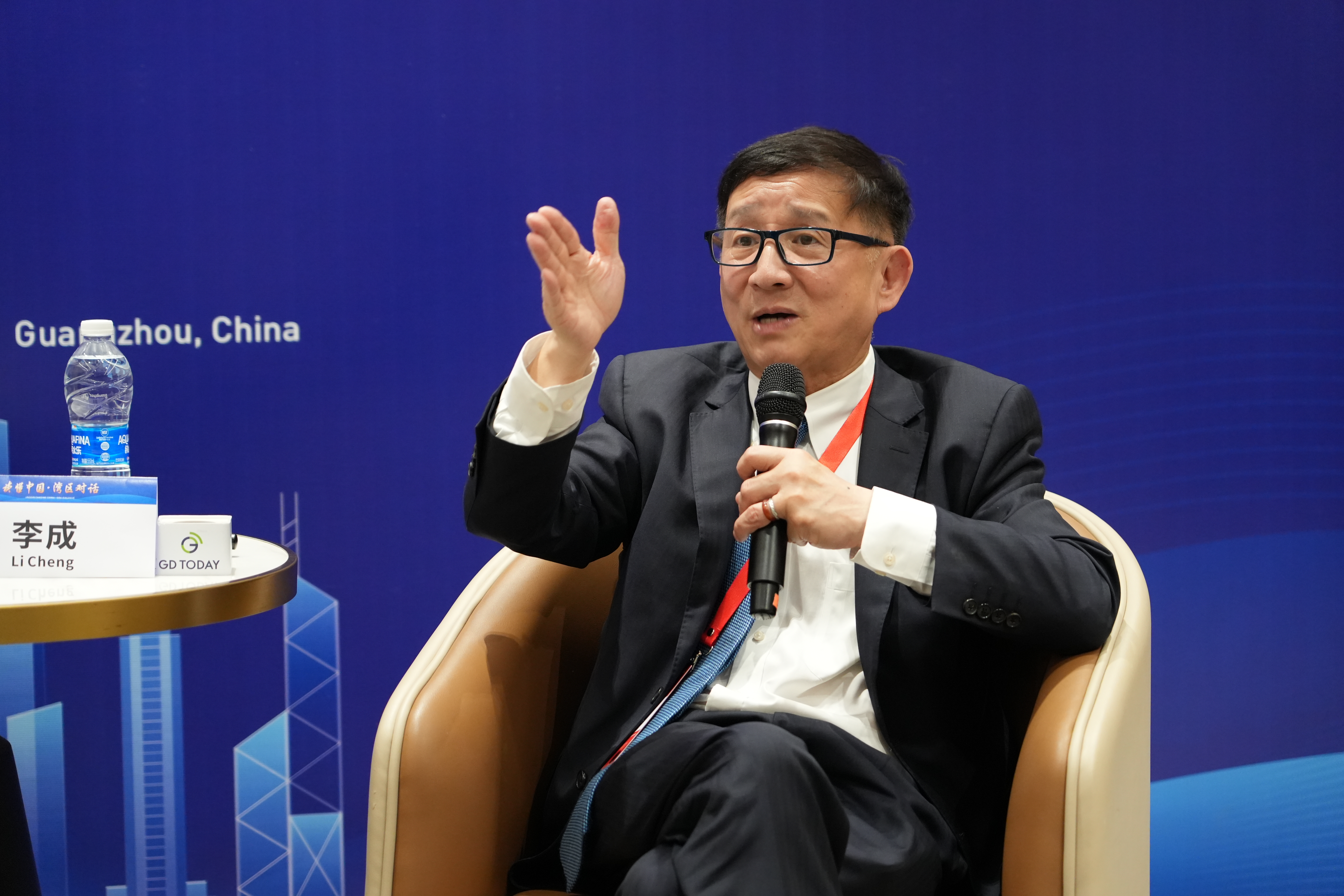“The investment banks are positive about China’s market as the International Monetary Fund (IMF) forecast China's growth to reach 5.2 percent this year while some investment banks anticipate it will grow by over 6 percent,” said Li Cheng, Director of John L. Thornton China Center, Brookings Institution, told GDToday at the Understanding China Forum in Guangzhou.
Li attributed it to the stable business environment of China including the Hong Kong Special Administration Region, saying, “If you think China market or the Guangdong-Hong Kong-Macao Greater Bay Area (GBA) market is not ideal, so where is the ideal market? There's no ideal market.”

Li Cheng, Director of John L. Thornton China Center, Brookings Institution
China's GDP grew 4.5 percent year-on-year in Q1. The country’s economy made a good start this year, and market expectation saw significant improvement, according to China's National Bureau of Statistics on April 18.
Li analyzed from the perspective of China, its target would be conservative because the country is expecting a more steady and sustainable growth. “But even if the number stays at 5 percent, China is still going to contribute about one-third of global growth, which will be remarkable,” he said.
There are concerns about the United States-China technological decoupling from both the U.S. and Chinese companies. Li said there might be more restrictions from the U.S. side in the near future, which is expected to restrain investment and cooperation in more tech industries, and affect the U.S. cooperation with the GBA which is the innovation center of China.
The decoupling strategy is controversial in the U.S., according to Li. “The Brookings Institution has organized a series of meetings with people from different sectors. Most of them consider the decoupling costs too much and cannot be achieved eventually,” he said.
He elaborated that the service industry including finance takes up 80 percent of the U.S. economy. Proposals such as bringing manufacturing back to the U.S. are impractical as they do not accord with the comparable advantage, the principle of economic globalization.
“The U.S. lacks skilled workers for manufacturing. Even Morris Chang, the founder and former CEO of Taiwan Semiconductor Manufacturing Company, himself is worried about the challenges the company might face after relocating two of its plants in the state of Arizona,” Li added.
He believes sooner or later, the U.S. will realize that decoupling will bring more harm than benefit.
In addition, Li highlighted cultural exchanges are of great demand between China and the U.S. to better understand each other, and considers the China pictured by the U.S. is completely different from the real China as the Covid-19 pandemic hindered bilateral communication.
“I’m shocked when visiting the Shamian Island in Guangzhou this time as I saw the elderly people enjoy various activities there and washrooms for the disabled are set up in many hotels. The way the community respect the vulnerable is very touching,” he explained.
Reporter: Jasmine
Photo: Axin
Editors: Wing, Jerry
















